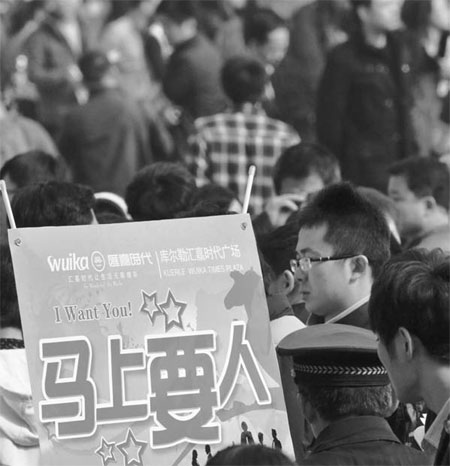Salary hike guidelines set for Xinjiang
Updated: 2014-07-11 12:06
By Gao Bo in Lhasa(China Daily USA)
|
||||||||
Xinjiang province has released the annual basic guideline for workers' salary increases, with the basic line at 15 percent and no more than 18 percent and no less than 5 percent. Each of the figures is 1 percent lower than last year, and the basic line is 4 points higher than last year's GDP growth.
The index is for reference when employees negotiate their salary with company owners, an official of Xinjiang Human Resources and Social Security Department said at a press conference.
The department requires prefectures of the region to timely publicize the local basic line in accordance with economic factors, including labor costs.
Despite having the highest increase in the basic line and rising income for urban and rural residents in the region, the total income of Xinjiang residents is still lower than inland provinces, said Qin Bo, a researcher for the Xinjiang Development and Reform Committee.
He suggested that the central government subsidize people working in frontier areas to narrow the income gap between Xinjiang and inland provinces.
"At present, the salary income for urban families took nearly 72 percent of the families' total income," Qin said, "A rational salary increase system is important for them."
However, the high rate of increase year-on-year is not acceptable to companies.
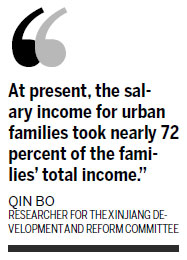
A worker with an annual salary of 50,000 yuan ($8,000) will see his income surpass 100,000 yuan in five years if the annual increasing rate stays at 15 percent.
Xiong Li, vice general manager of Hubei Yihua Group Co Ltd, said his company can follow the basic guideline of 15 percent for employees at its Xinjiang branch on average, but then the company must count in probation enrollment, promotion and a longevity pay raise.
Data from the department showed that, from 2010 to 2012, the annual average salary growth of urban workers was 17.4 percent, to 41,642 yuan from 29,593 yuan. In 2013, the figure was 49,843 yuan.
The basic guideline for Henan province is also15 percent. In addition to Xinjiang, some places decreased the figure compared with last year.
Zhang Chewei, an expert from China Social Sciences Academy, said that, the decrease is caused by the lower growth of the economy, an increase in labor costs and lower profits for companies.
"This may put more pressure on enterprises when they consider a salary increase," said Zhang.
Dong Xing, a 32-year-old manager who owns an IT company in Urumqi city said he couldn't follow the new guideline because his profit was counted at the end of the year. "I gave each one 18,000 yuan as a yearly bonus, about 30 percent more than the year before," he said.
|
A job fair was held in Kuerle, Xinjiang Uygur autonomous region in March. More than 120 companies offered 2,000 jobs covering marketing, design and management. Que Hure / for China Daily |
(China Daily USA 07/11/2014 page5)
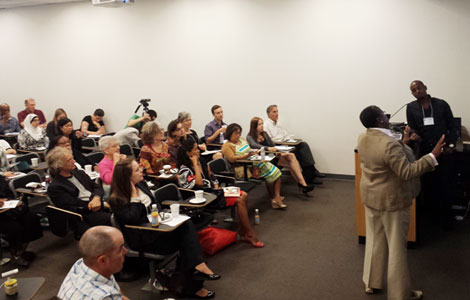
 US teachers learn from China
US teachers learn from China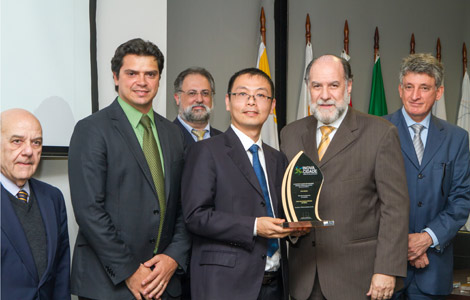
 BYD's green bus wins award
BYD's green bus wins award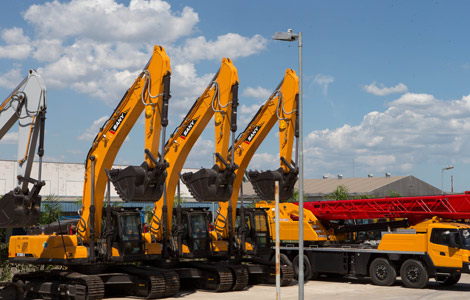
 Sany cracks Brazilian machinery marketplace
Sany cracks Brazilian machinery marketplace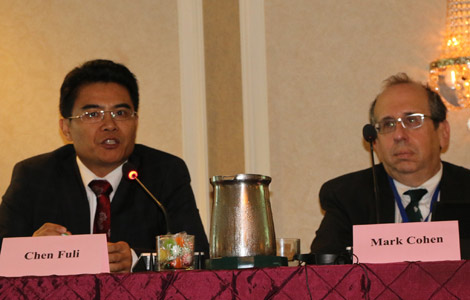
 China, US step up IPR cooperation
China, US step up IPR cooperation
 Shanghai Tourism Festival opens with razzle-dazzle
Shanghai Tourism Festival opens with razzle-dazzle
 Downpour wreaks havoc in SW China
Downpour wreaks havoc in SW China
 Drills and exercises mark World First Aid Day
Drills and exercises mark World First Aid Day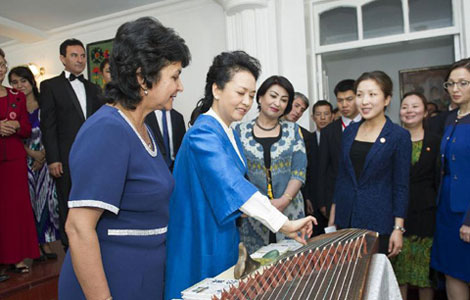
 China's first lady Peng Liyuan hits the right note
China's first lady Peng Liyuan hits the right note
Most Viewed
Editor's Picks

|

|

|

|

|

|
Today's Top News
Silk Road, climate change on agenda
Chinese president arrives in Maldives for state visit
Boosting innovation in Latin America
China, LatAm see rosy trade prospect
US tourist in DPRK gets 6 years of hard labor
China, Central Asia unveil new energy cooperation
Alibaba roadshow bodes well for record-breaking IPO
Chinese plant joins US firm in fuel ingredient production
US Weekly

|

|
